You will definitely need to convert hours to days in Excel if you work with time tracking, scheduling, or project timelines. Converting raw hour data into days can make reporting easier and make timesheets easier to understand, whether you’re estimating employee work hours, summarizing time spent on activities, or evaluating timesheets. Depending on whether you’re working with conventional 24-hour days or unique working days, such as, 8-hour workdays, Excel provides a number of simple ways to accomplish this conversion.
Steps to convert hours to days combining INT and MOD functions:
➤ Create a new column adjacent to the hours column to apply the formulas in.
➤ In the first cell of column C, put in the formula: =INT(B2/24) & ” days and ” & MOD(B2,24) & ” hours”.
➤ Click and drag the Fill handle down the entire cell range for applying the formula to the whole column.
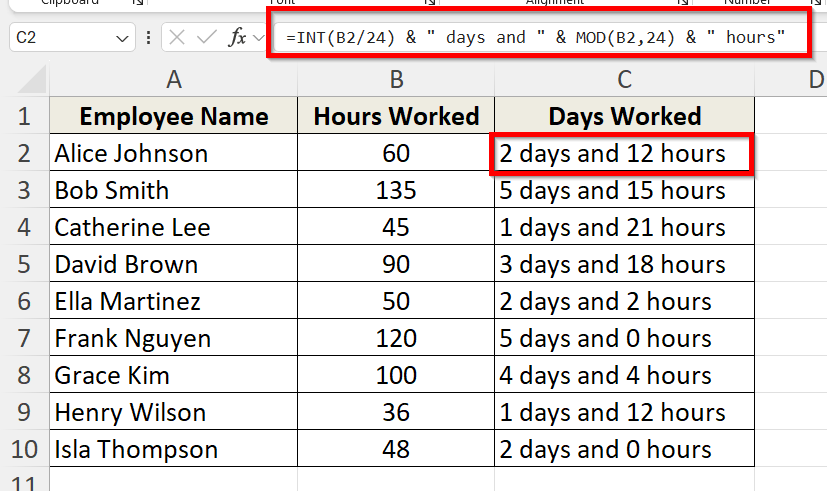
In order to provide precise guidance to do this, we’ll examine the best methods for converting hours to days in Excel utilizing four different formulas and functions in this article.
Use CONVERT Function to Convert Hours to Days
Excel has a built-in CONVERT function that can be used to change values from one unit to another. It is the easiest method to use when you want to convert hours to days instantly. This method is for a 24 hour day format which will give the results into decimal values of days.
Suppose, this is our dataset where we have the total working hours of the employees.
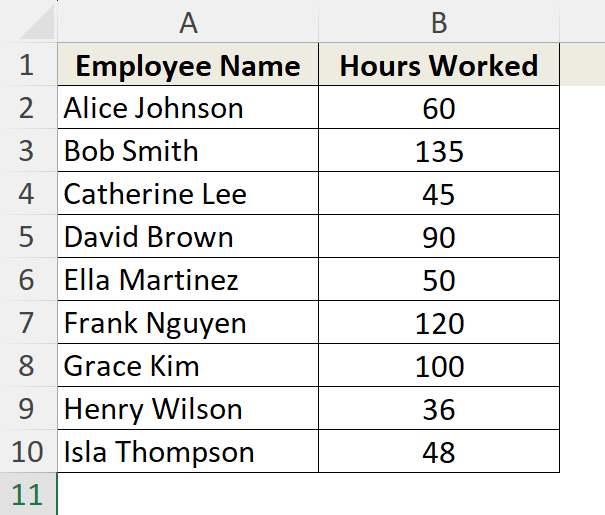
We need to convert their hours worked into days for official documentation. Here’s a clear step-by-step guide to using the CONVERT function for this purpose.
➤ We will introduce a new Column C where the heading will be Days Worked in cell C1.
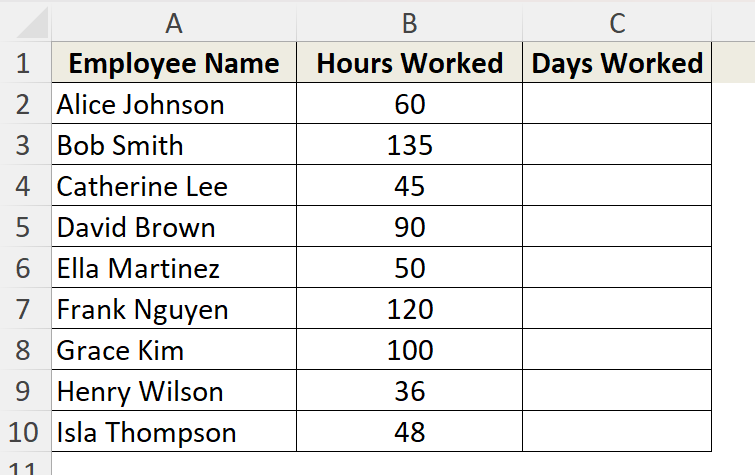
➤ Click on cell C2 and type in the formula:
=CONVERT(B2, "hr", "day").
This will convert the hours into days by dividing the values with 24. For example, 60÷24 = 2.5 days.
➤ Click and drag the Fill handle at the bottom right corner till cell C10 to apply the formula in the entire column C.
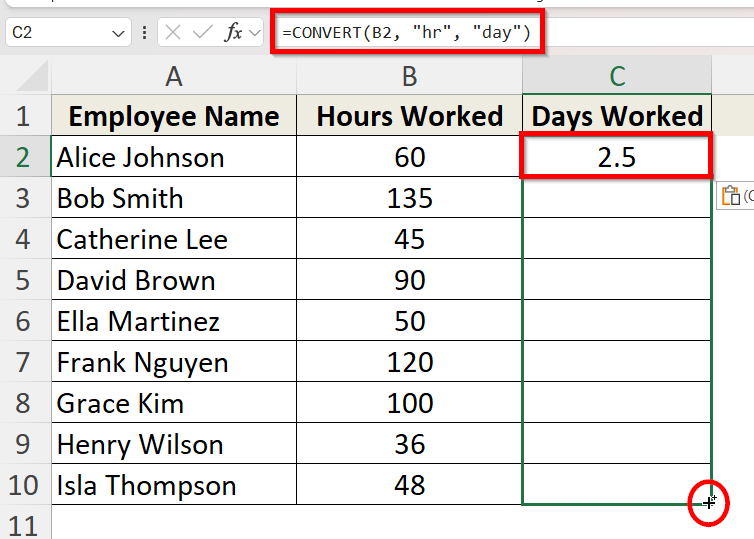
➤ Now, we have the days from the corresponding total hours for each employee.
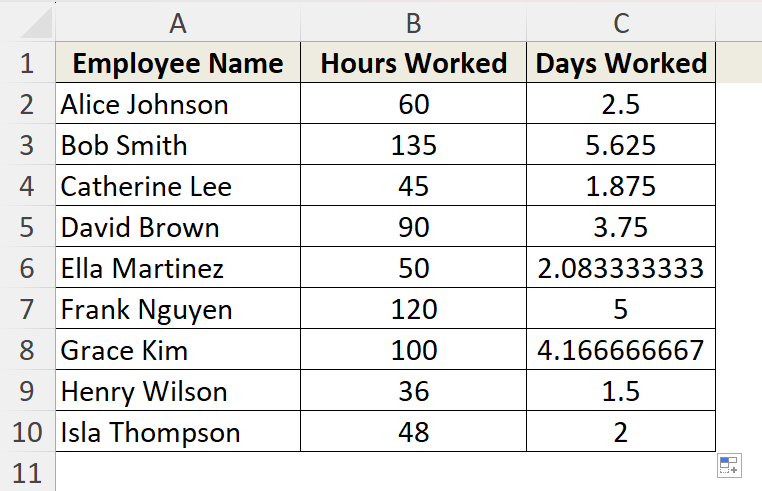
Combine INT and MOD Functions to Convert Hours to Days
This method is useful when you want to show the days in a more human-readable format like, 2 days and 4 hours, rather than just a decimal number.
Follow these steps to combine two functions INT and MOD together and convert the hours to days:
➤ We will introduce a new Column C where the heading will be Days Worked in cell C1.
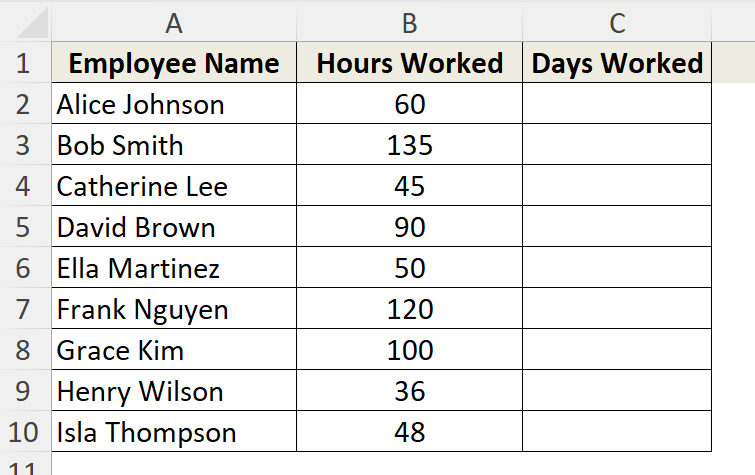
➤ Click on cell C2 and type in the formula:
=INT(B2/24) & " days and " & MOD(B2,24) & " hours"
Here, the function INT(A1/24) gives the total full days and MOD(A1,24) gives the remaining hours which is less than 24 hours.
➤ Click and drag the Fill handle at the bottom right corner till cell C10 to apply the formula in the entire column C.
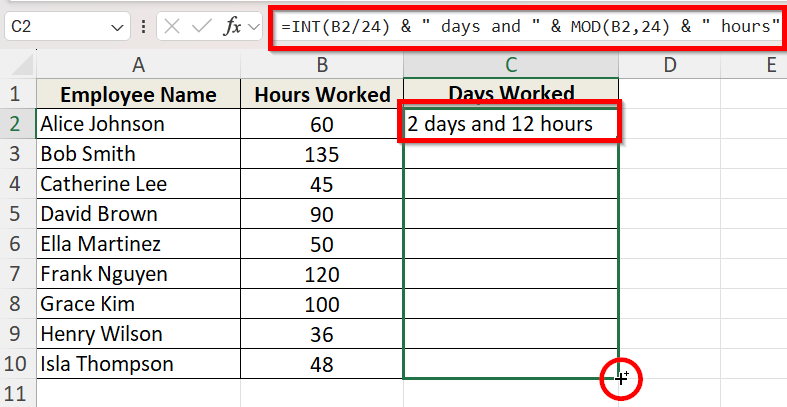
➤ Now, we will have the corresponding number of days and hours for each total hours worked converted.
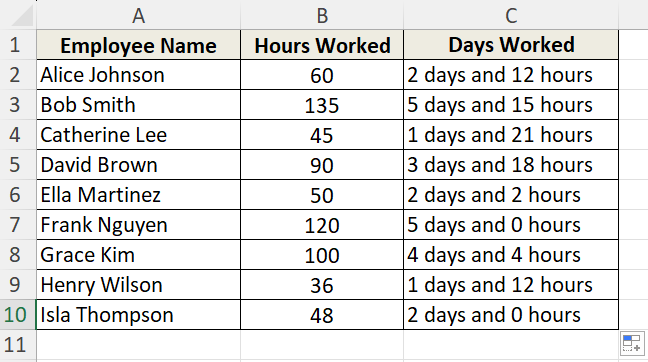
Insert QUOTIENT Function to Convert Hours to Days
This method converts a number of hours in cell B2 into days and hours, and adds appropriate singular/plural labels such as “Day” vs. “Days” or “Hour” vs. “Hours”. Along with the QUOTIENT function, this formula also utilizes the MOD and IF function altogether for the output.
Follow the steps below to apply the QUOTIENT function and convert the hours to days:
➤ We will introduce a new Column C where the heading will be Days Worked in cell C1.

➤ Click on cell C2 and type in the formula:
=QUOTIENT(B2,24) & IF(QUOTIENT(B2,24)=1," Day"," Days") & " " & MOD(B2,24) & IF(MOD(B2,24)=1," Hour"," Hours")
Here, the function QUOTIENT gives the total full days and MOD gives the remaining hours which is less than 24 hours. The IF function is added for the correct labelling of days and hours.
➤ Click and drag the Fill handle at the bottom right corner till cell C10 to apply the formula in the entire column C.
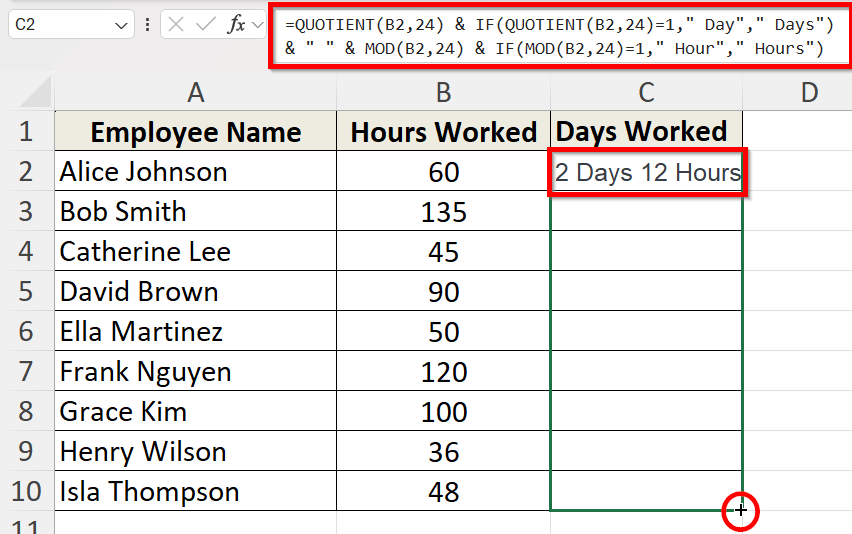
➤ Now, we will have the corresponding number of days and hours for each total hours worked converted.
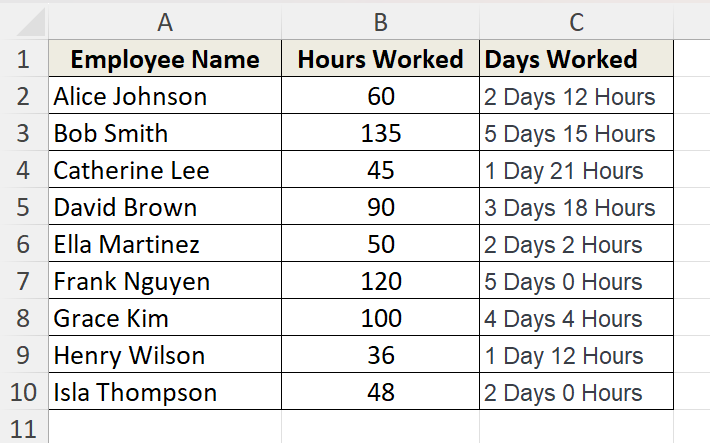
Convert Hours to Days for 8 Hour Working Day Format Using QUOTIENT Function
If you want to convert the working hours to a 8 hour working day format instead of a 24 hour working day format, this method is for you. This is very useful to calculate the total working days of employees in an organization.
Implement the formula by following these instructions below:
➤ We will introduce a new Column C where the heading will be Days Worked in cell C1.

➤ Click on cell C2 and type in the formula:
=QUOTIENT(B2,8)&" days, "&((B2/8)-QUOTIENT(B2,8))*8&" hours"
Here, QUOTIENT(B2, 8) divides the total hours by 8 and returns the whole number of full 8-hour workdays.
➤ Click and drag the Fill handle at the bottom right corner till cell C10 to apply the formula in the entire column C.
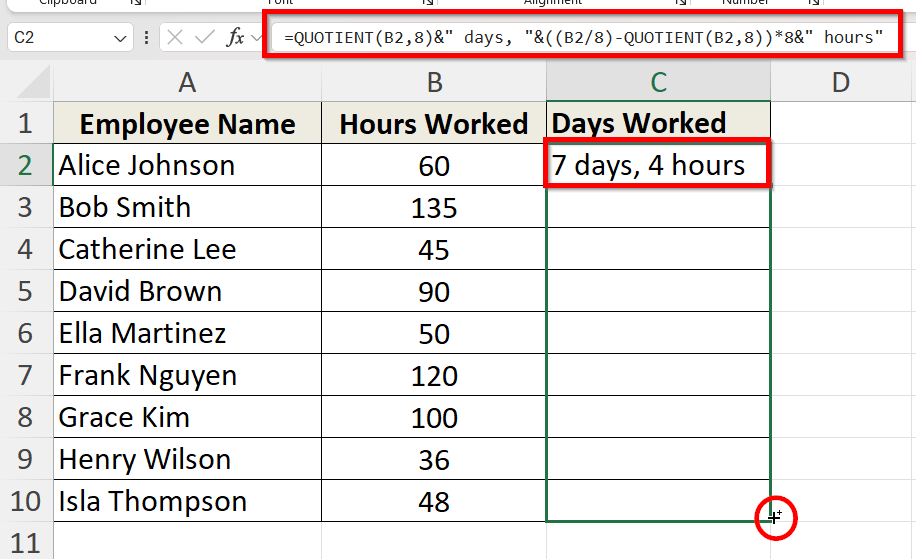
➤ Now, we can see the total converted days considering a 8 hour working day from the total hours worked.
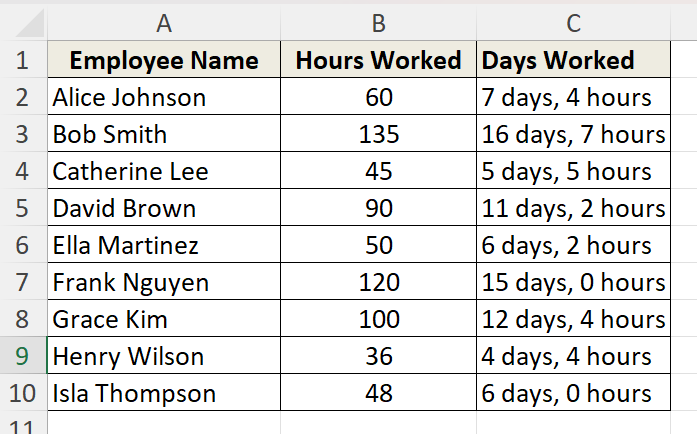
Frequently Asked Questions
What Is The Simplest Way to Convert Hours to Days in Excel?
The simplest way to convert hours to days in Excel is to manually divide the number of hours by 24. If your hour value is in cell B2, type in this formula in an adjacent cell: =B2/24.
This converts hours to days based on a 24-hour day.
How Do I Manually Convert Hours to Working Days For 8-hour Days?
You can put in a manual formula in an adjacent cell to convert the hours to 8 hour working days. In an adjacent cell to cell B2, type the formula: =B2/8.This will divide the total hours by 8 and give you a decimal value of the days.
How To Calculate Days With Hours in Excel?
You can use the formula =INT(A2/24) & ” days, ” & MOD(A2, 24) & ” hours” to calculate days with hours in the output. Here, the INT function will give you the whole number of days and the MOD function will give you the remaining hours.
Wrapping Up
As we can see, Excel offers a variety of versatile techniques, from basic division to complex formulas including QUOTIENT, INT, MOD, and CONVERT. You can apply any of these methods for both 24 hour and 8 hour day format by tweaking the formulas accordingly. Each approach serves a distinct purpose where some are fantastic for rapid computations, while others are ideal for structuring results in a reader-friendly fashion.
Make your timesheets smarter and more informative by selecting the one that best suits your workflow.














